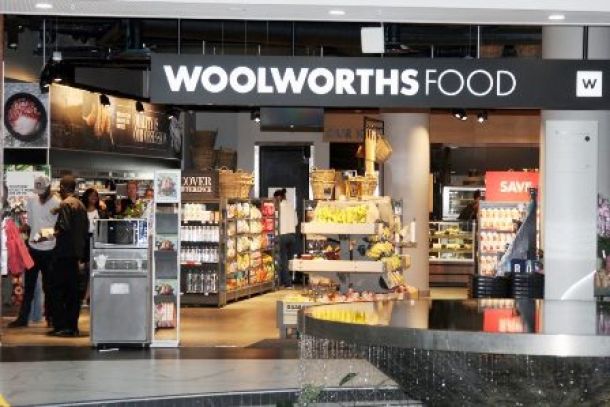Spar named overall winner at the Absa Business Day Supplier Development Awards
A key theme of this year’s Absa Business Day Supplier Development Awards, which were announced during a recent digital event, was just how dependent we are on each other.
Founder and CEO of Fetola Catherine Wijnberg, one of the hosts of this year’s awards, together with Cold Press Media and Arena Holdings, said that Covid-19 has taught us: “When one domino starts tumbling, it’s felt all the way down the line.”
This is a time when businesses should be looking out for each other. Now is the time, she said, for a deliberate strategy to foster collaboration in our ecosystems, strengthen supply chain and small supplier resilience, rethink and restructure value chains to maximise opportunities, and innovate to achieve competitive advantage and reignite growth. Supplier development, she said, presents a golden opportunity to do just that.
Key to a prosperous future is the growth of the SMME sector, which requires that opportunities in corporate supply chains are opened up, agreed Vusi Fele, Absa chief procurement officer. This is particularly important as the economy adapts to a post-Covid world.
Now in their third year, the awards recognise the need to bridge the gap between suppliers and corporate SA. They encourage best practice and a collaborative ecosystem between corporates and suppliers, as well as the government and the public sector, that benefits all parties and helps to rebuild SA’s economy.
This year the overall winner was Spar Group, which the judges agreed stands out as a leader in supplier development. Spar Group also won the Rural and Township Development Award for their Spar Rural Hub programme, which supports small-scale farmers and creates markets for their products.
The Newcomer Award went to the V&A Waterfront. This award acknowledges companies for a new strategic Supplier Development programme or project that has shown merit in design thinking, innovation and commitment to growth. The V&A Waterfront — which has about 300 SMME suppliers — last year reimagined its festive season décor, partnering with 140 artisans and smaller suppliers to boost the local economy. The V&A Waterfront also won the Local Manufacturing Award for its support and investment in local communities and local suppliers.
The Youth Development Award, which acknowledges companies who have exceptional results in supporting youth suppliers, was awarded to Distell. The Black Women Development Award was awarded to The Empact Group for their focus on supporting black women suppliers.
The Skills of the Future (4IR) Award was awarded to Unilever SA who were one of the few finalists to show a strong focus on supply chain innovation and implementing 4IR solutions for supply chains.
Distell and Tiger Brands were the joint winners of the Collaboration Award. This award acknowledges companies for their strategic action to develop industry relationships and foster cross-sector collaboration.
The Small Supplier Award in partnership with Small Enterprise Development Agency (Seda) was awarded to SAB for their deliberate strategy to protect the long-term success and profitability of small suppliers, particularly during the post-Covid period.
The Impact Award went to Tiger Brands for supplier development initiatives that have substantially affected the value chain.
Presenting the keynote address at the awards, business leadership expert, Ian Russell emphasised that the impact of the Covid-19 pandemic means that nothing will ever be the same again. The sooner that businesses accept that, the sooner they will be able to adapt and survive in this new world. This new world requires that we trade differently, lead differently and manage businesses differently.
In many cases, small businesses were more prepared for the changes emanating from the Covid crisis than larger corporates. His advice was stay lean, keen and mean and grasp the opportunities as they present themselves.
Strip down the core of what your business actually represents, he told small business owners, and make your stand a defining moment for your brand. Furthermore, watch trends and consumer demand patterns carefully to provide the solution that no-one sees coming.
The new normal does not exist, said Russell, and there is no turning back. Instead, he said businesses need to focus on survival, followed by revival and then figuring out how to thrive post Covid.
As part of this year’s awards, a series of live digital dialogues featuring a variety of industry experts were presented at the beginning of September.
In an online panel discussion, which formed part of the Absa Business Day Supplier Awards Dialogue Series, Wijnberg spoke to former awards finalists and supplier development specialists about SMME resilience.
According to Koenie Slabbert, acting executive manager for Seda, localisation is the key word when it comes to the survival of SMMEs in SA’s current economy. “All countries will be concentrating on rebuilding their own economies in the wake of the Covid-19 disaster,” he said, adding that SA needs more than ever to focus on local manufacturing.”
Seda has a number of programmes it is implementing in this regard. These programmes are intended to bring businesses in the informal sector to a state of sustainability so that they are able to contribute to the economy. “This will mean more jobs, a stronger economy and more disposable income,” said Slabbert.
Noni Qoboshiyana, business development specialist at SAB, said that Covid-19 has highlighted SA’s vulnerabilities. The alcohol industry, in particular, was hard hit by the lockdown ban on alcohol sales and is now in survival mode. “As such, it is vital to grow our local manufacturing base as a springboard for export, and to support small businesses in our own value chain,” she said.
SA’s focus on localisation needed to be intensified, she said. “SAB is looking to strengthen its local supply chain to get to 100% local content — it is now at 97%,” she said, adding that SAB is looking to partner with other corporates who have the same intention to buy and manufacture locally and take a back to basics approach of creating, retaining and reviving jobs.
“As a large player in the alcoholic beverage industry, Distell’s decisions affect the lives of companies and communities beyond even the borders of SA,” said Charles Wyeth, Distell local economic development manager. “As such we are conscious of using our assets and expertise to develop the resilience of smaller suppliers to enable them to navigate crises such as Covid-19.”
Another session in the dialogue series focused on innovation in the supply chain via the fourth industrial revolution (4IR). According to Wijnberg, supplier development is critical to unlock the potential in SA’s economy, and yet SA has been on the back foot of 4IR for many years.
Awards finalist NgwaKo Ramohlale, SoluGrowth head of innovation, said technology is always at the forefront of any revolution and, ultimately, the most crucial piece in any puzzle.
“Our policy is to reskill, upskill and redeploy because of the rate at which technology causes disruption and changes the way we do things.” Companies need to use the people they have. It is possible to learn skills such as machine learning, automation and data analytics, she said, adding that 4IR makes it easier for a developing country like SA to compete in global markets. “Technology has, to a degree, levelled the playing field,” she said.
Suzanne Hattingh, principal consultant for learning for performance improvement agreed that the government has a critical role to play. “It’s not just about changing the system; it’s about changing the underlying assumption that you need a qualification or accreditation to find work. Ultimately, the national qualification framework does not provide the kind of training that is required for a 4IR working environment, which is more about creating the skills you need as you go along: just-in-time training on skills such as computational thinking and cognitive load development.”
African digital revolutionist Emma Kaye said providing internet access in townships is key to unlocking the economy. “Bringing the informal market into the economy is critical.”
Technology, according to Kaye, can (and is) being used to understand the skills available within township communities and populate jobs that are required.
“We should be asking how technology can be used to create a circular economy where money remains in the townships and make unskilled people part of the value chain,” she said.
Ridwaan Asvat, Regent Business School operations director, expects that government will play a role in pushing the agenda for 4IR. Typical business plans and processes do not help companies that need to make immediate decisions or risk losing clients or market share, he said.
Building inclusive and healthy supply chains has become a matter of importance for publicly traded companies and the financial sector, said Fele during a panel discussion on the topic. “Supplier development is also not about charity, rather it’s an investment that needs to be made by state-owned entities and the private sector. Covid has shown us that sustainable supply chains prop up a country in times of crisis.”
Group procurement manager at Distell, Lynden Isaacs, said that supplier development has nothing to do with chasing a score, but it simply is the right thing to do. The entire value chain should form an ecosystem that aligns with, and creates a platform for, smaller SMEs that have battled to gain access to corporates in the past. Long-term relationships and looking after suppliers is crucial for business, he said.
Kevin O’Brien, the group risk and sustainability manager at the Spar Group, said collaboration is crucial when it comes to building supply chains sustainably to alleviate poverty. “No one brand can do this alone.”
Litha Kutta, Tiger Brands ESD director, agreed that collaboration was key: “We need to build the economy as a collective — every player has a role and different strengths to offer; because when people earn money, the whole supply chain will begin to function optimally. When we all work together towards the same objective — a thriving country — we all win.”
Another series of the dialogue debated whether there is a space for supplier development in these troubled economic times. The panel, consisting of Kutta; ESD specialist Guy Harris, and SAB supplier development manager Vikesh Singh, agreed that supplier development presents an opportunity to strengthen ecosystems that will deliver long-term benefits both to corporates and small suppliers.
Analysing what SA’s economy will look post the Covid crisis was debated by Hilary Joffe, contributing editor of Business Times and Sunday Times; Mariëtte du Toit-Helmbold, chief destineer at Destinate; Jacob Maphuta, chief director of BEE at the department of trade & industry; and Gaylor Montmasson-Clair, senior economist of trade and industrial policy strategies.
The panelists agreed that not only does SA’s growth outlook show a decline but will come out of the Covid-19 crisis poorer, with much sharper inequality and unemployment. As public finances become depleted, it will leave the country reliant on limited resources to support the social needs of society.
In this climate, women have a vital role to play in achieving sustainable development through promoting gender equality and women’s empowerment. “We often stand at the front line in terms of poverty, yet provide invaluable contributions to sustaining communities,” said Cecilia Njenga, head of the UN environment office in SA during a panel discussion, which considered supporting the livelihoods of women in supplier development programmes.
It goes without saying that there will be an increased drive to rebuild the economy. From spending on health care to stimulus packages to fund business continuity, government has its task cut out for it and without the support the private sector, there is not much hope of recovery,” said Peter Bruce, former editor-in-chief of Business Day and Financial Mail, during a panel discussion considering recovery strategies for struggling supply chains post the Covid crisis.
A final dialogue in the series was titled “Embracing the digital domain”. Insights from Johan Louw, Aguru Business Solutions CEO; Alison Jacobson, The Field Institute co-founder; and Kutta examined the nature of disruption, what future digital tools and delivery models are needed in the supply chain to enhance efficiencies and bridge the digital divide, and how to innovate with purpose for a competitive future.
The panel provided 10 guidelines, including understanding that customers have more risks than ever before, which means that positioning and value needs to be refreshed; systemic and agile thinking is key; data integration can be used to connect value streams; move from analogue to digital; provide customers with access to data at your cost; ensure a targeted digital footprint; investigate ICT as an enabler and finally, as was the theme with many of the dialogues — collaborate, connect and compliment services and partnerships.
For more detail on the Absa Business Day Supplier Development Dialogue Series, visit www.sdawards.co.za.
News Category
- International retailers
- On the move
- Awards and achievements
- Legislation
- Wine and liquor
- Africa
- Going green
- Supplier news
- Research tools
- Retailer trading results
- Supply chain
- Innovation and technology
- Economic factors
- Crime and security
- Store Openings
- Marketing and Promotions
- Social Responsibility
- Brand Press Office
Related Articles

Shoprite Group earns Top Employer status for 2024

Woolworths snaps up four awards at the annual P...

Shoprite, Usave and Checkers private label prod...

Shoprite’s Xtra Savings shines at 2024 Internat...


